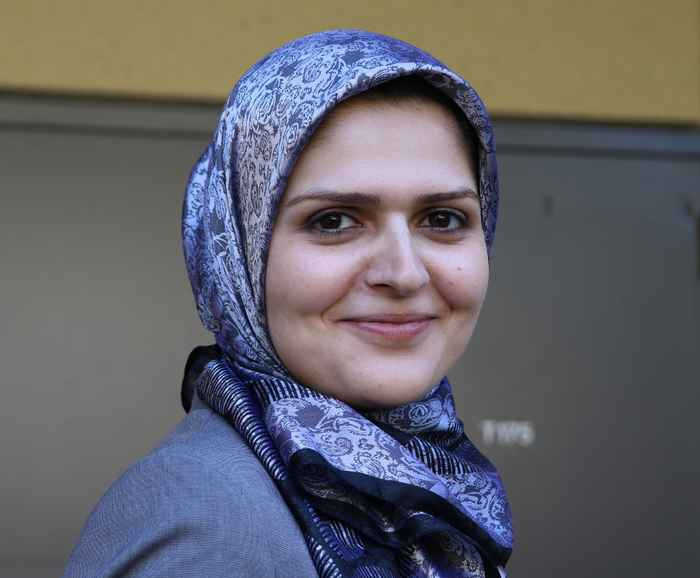Veni laureate Fatemeh Hashemi joins Functional Materials group
13 January 2022

Large scale monitoring of air quality requires the development of gas sensors with lower energy consumption and increased sensitivity, as well as miniaturization of the sensing equipment. This can only be realized through advances in new technologies for materials and processes.
Microporous metal organic frameworks (MOFs) are ideal candidates for sensitive and cost-effective detection of gaseous chemicals. This is due to their exceptionally high surface area and adjustable pore size, as well as their versatility in tailoring the affinity towards specific chemicals. However, most existing methods for producing MOFs are solvent-based, which renders them inadequate from an environmental and economic point of view. Moreover, these methods frustrate the integration of the sensing device with microelectronics, since they are incompatible with common microelectronics technology.
In her Veni research, Hashemi wants to develop a novel vapour-based layer-by-layer approach for the deposition of MOF thin films, which will allow for an integrated process of designing MOFs compatible with microelectronics. This will be via an approach resembling atomic layer deposition (ALD), which enables precise control over the fabrication conditions including film thickness, uniformity and crystallinity. It will also allow for in-situ functionalization of the deposited materials. Furthermore, since ALD processes have been well-developed in microelectronics fabrication, her approach allows for a compatible integrated design of the MOF sensors. In her Veni research, Hashemi will investigate vapour deposition and properties of MOF thin films, followed by their sensing capabilities towards toxic gases once integrated into devices.
The Veni grants are part of the Talent Scheme of NWO and are aimed at excellent researchers who have recently obtained their doctorate. The grants of up to € 280,000 provide them with the opportunity to further elaborate their research ideas over a three-year period and further establish themselves in their field.